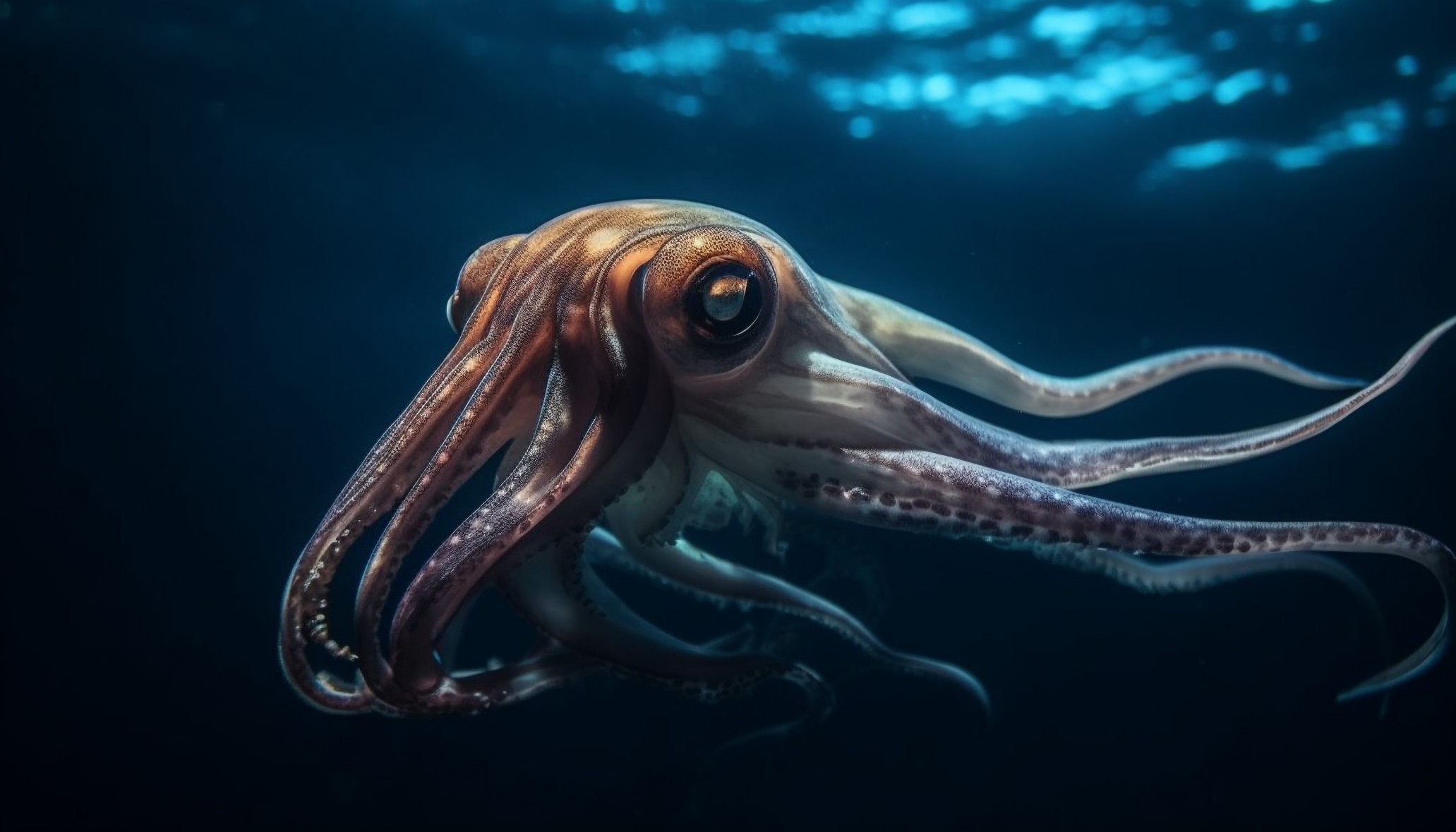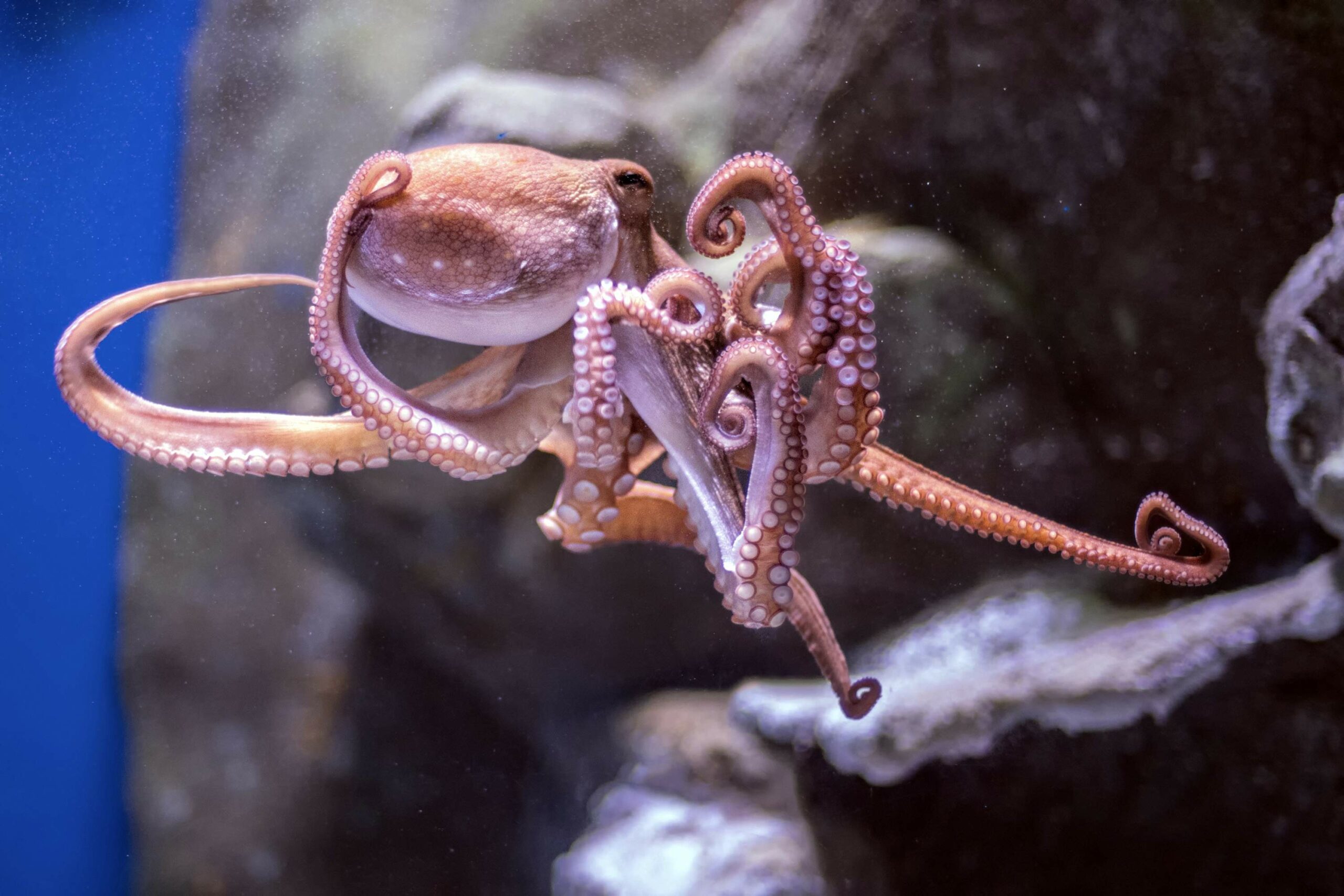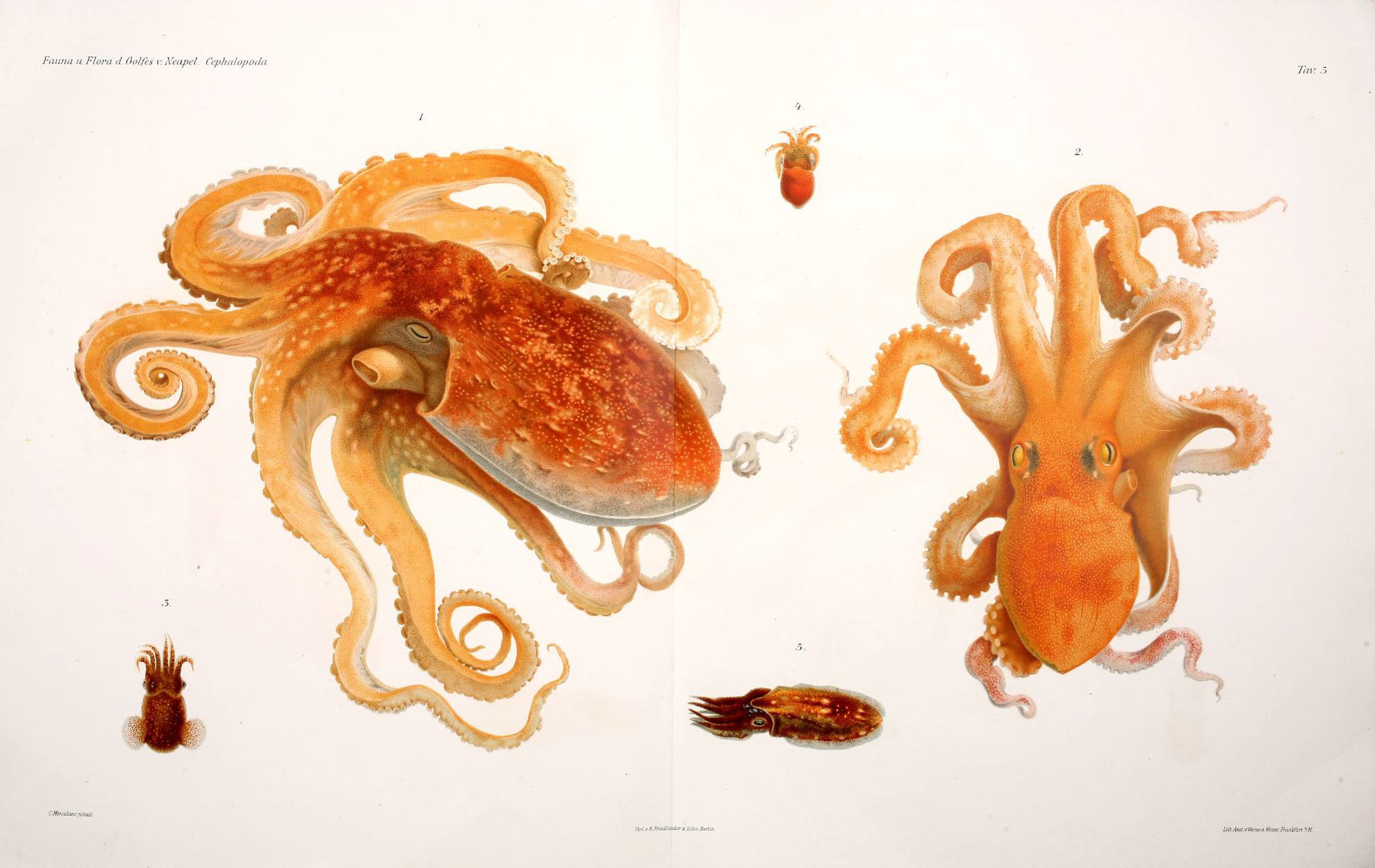Deep below the ocean’s surface lies an extraordinary creature that has intrigued scientists and seized the imagination of many: octopuses. Often regarded as some of the most mysterious and intelligent beings in the animal kingdom, their unique capabilities and otherworldly appearance have led to thought-provoking theories that question their origin. Could it be possible that these enigmatic cephalopods are actually ancient aliens from outer space? This bold claim has gained attention recently due to a number of scientific papers proposing an extraterrestrial origin for these fascinating sea creatures.

The Cambrian explosion and extraterrestrial intervention
The idea that octopuses are extraterrestrial beings might sound like science fiction, but a growing body of research has shed light on their peculiarities. While the exact evolutionary origins of cephalopods remain a topic of debate, their extraordinary traits, including complex nervous systems, advanced problem-solving abilities, and shape-shifting abilities, have raised interesting questions.
Therefore, to understand the argument that octopuses are aliens, we must first examine the Cambrian explosion. This evolutionary event, which occurred approximately 540 million years ago, marked a rapid diversification and emergence of complex life forms on Earth. Many scientists have proposed that this explosion of life could be attributed to extraterrestrial intervention, rather than purely terrestrial processes. A scientific paper suggests that the sudden appearance of octopuses and other cephalopods during this period could be a key piece of evidence supporting this extraterrestrial hypothesis.
Panspermia: Seeding life on Earth
The concept of panspermia forms the foundation for the idea that octopuses are aliens. Panspermia hypothesizes that life on Earth originated from extraterrestrial sources, such as comets or meteorites carrying the building blocks of life. These cosmic travelers could have introduced novel life forms, including viruses and microorganisms, to our planet. The paper suggests that octopuses may have arrived on Earth as cryopreserved eggs, delivered by icy bolides hundreds of millions of years ago.
Anomalies in the tree of life
Octopuses possess a set of extraordinary traits that make them stand out among other creatures. Their highly developed nervous systems, complex behaviors, and sophisticated camouflage abilities have puzzled scientists for years. According to the scientists, these unique characteristics are difficult to explain solely through conventional evolutionary processes. They propose that octopuses may have acquired these traits through genetic borrowing from a distant future or, intriguingly, from extraterrestrial origins.

The question of genetic complexity
The genetic makeup of cephalopods like octopuses and squids has unveiled even more puzzling aspects to the alien theory. Unlike most creatures on Earth, whose genetic code is composed of DNA, cephalopods have a unique genetic structure utilizing RNA editing as a major regulatory mechanism. This leads scientists to believe that the complexity of their genetic code may have evolved independently or could be linked to an ancient lineage separate from other life forms on Earth.
An skeptic’s view on the alien octopus hypothesis
While the idea of octopuses being aliens is enthralling, it will not be wise to assume that the claims presented in these scientific papers are correct without critically examining them. Many scientists remain skeptical, pointing out several weaknesses in the hypothesis. One of the main critiques is the lack of in-depth study in cephalopod biology in these studies. Additionally, the existence of octopus genomes and their evolutionary relationships to other species challenges the notion of an extraterrestrial origin.
Moreover, octopus genetics beckon to their evolutionary history on Earth and refute the alien hypothesis. Studies have revealed that octopus genes align with our current understanding of terrestrial evolution, suggesting a gradual divergence from their squid ancestors around 135 million years ago. These findings indicate that the unique traits observed in octopuses can be explained through natural processes rather than extraterrestrial intervention.
The complexity of life’s origins
The question of life’s origins is one of the most profound mysteries in science. While the alien octopus hypothesis adds an intriguing twist to its existence, it is very important to consider the broader context. Scientists have proposed various theories, such as abiogenesis and hydrothermal vent hypotheses, to explain the emergence of life on Earth.
While some scientists suggest that the extraordinary attributes of squids and octopuses can be attributed to their remarkable adaptation to the diverse environments they inhabit. Others argue that these unique traits have evolved through parallel evolution, in which unrelated species develop similar characteristics due to similar selection pressures. The search for answers still persists, and the alien octopus hypothesis has remained as a testimony of the complexity of life’s origins.
Cephalopod intelligence

Cephalopods, which include octopuses, squids, and cuttlefish, are known for their remarkable intelligence. They have a highly developed nervous system and large brains relative to their body size. Some of their remarkable cognitive abilities include:
Problem-solving skills: Cephalopods have been observed to solve complex puzzles and mazes, demonstrating their ability to plan and execute strategies to obtain rewards.
Tool usage: Octopuses, in particular, have been observed using rocks, coconut shells, and other objects as tools. They can modify objects to suit their needs, such as opening jars to obtain food.
Camouflage and mimicry: Cephalopods possess highly developed camouflage abilities, allowing them to rapidly change their skin color and pattern to blend with their surroundings. They can also mimic the appearance of other animals to ward off predators or attract prey.
Learning and memory: Cephalopods have shown impressive learning capabilities, quickly adapting to new environments and remembering specific locations and events. They can also learn by observation, acquiring new skills by watching other members of their species.
Communication: Cephalopods communicate with each other through various signals, such as changes in skin color and pattern, body posture, and the release of chemical signals. They can also visually signal threat displays or warnings to other cephalopods.
It is believed that squids are slightly less intelligent than octopuses and cuttlefish; however, various species of squid are much more social and display greater social communications, etc., leading to some researchers concluding that squids are on par with dogs in terms of intelligence.
The complexity and sophistication of cephalopod intelligence are still being studied, and further research is needed to fully understand the extent of their cognitive abilities.
Octopuses as alien intelligence models
Regardless of their origins, octopuses offer a unique opportunity to study intelligence that may differ significantly from our own. Their distributed intelligence, with neurons spread throughout their arms and suckers, challenges our understanding of cognition. Scientists like Dominic Sivitilli at the University of Washington are exploring the intricacies of octopus intelligence to gain insights into how intelligence might manifest on other planets. By studying octopuses, we may uncover new dimensions of cognitive complexity.
The boundaries of science and speculation
The alien octopus hypothesis straddles the line between scientific inquiry and speculation. While it sparks curiosity and invites imaginative possibilities, it lacks the robust evidence required to be widely accepted in the scientific community. As with any groundbreaking hypothesis, further research and empirical data are necessary to support or refute these claims. Science thrives on skepticism, rigorous testing, and the continuous pursuit of knowledge.
Final thoughts
The idea that octopuses are aliens from outer space is a fascinating concept that pushes the boundaries of our understanding. While the scientific papers proposing this hypothesis have garnered attention, we must not forget that we have to approach it with a critical mindset – as many mysteries about the origin and evolution of cephalopods remain unsolved.
The evidences presented in these papers are met with skepticism from experts who highlight the lack of conclusive proof. Nevertheless, the enigmatic nature of octopuses continues to inspire scientific inquiry, offering us a glimpse into the vast diversity of life forms and their connection, if any, to the depths of outer space.
As we uncover the mysteries of the universe and explore the depths of our oceans, the possibility of encountering truly alien intelligence remains tantalizing. Whether or not octopuses are extraterrestrial beings, they continue to captivate our imaginations and remind us of the immense complexity and wonder of the natural world we inhabit.
After reading about the mysterious origins of octopuses, read about the Immortal Jellyfish can revert back to its youth indefinitely, then read about 44 strangest creatures on Earth with alien like characteristics.




